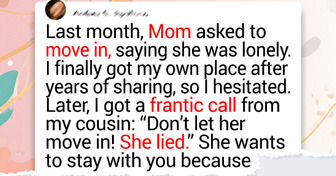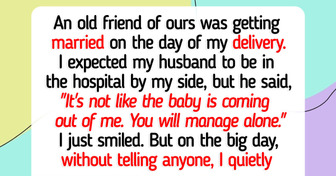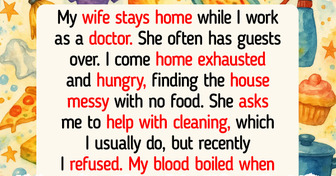12 Story Twists More Shocking Than a Hitchcock Thriller

Weddings are meant to be the most memorable day of our lives — we can spend months, even years, dreaming about every detail, from the perfect outfit to the vows that seal the moment. But sometimes, life throws us a curveball, turning our most cherished plans upside down. In my case, what was supposed to be the happiest day of my life took an unexpected and heartbreaking turn.
I’m a teacher, and last year I requested leave two months before my wedding. But just a week before the big day, the principal called me in and said, “I have to revoke your leave. We’re short-staffed, and exams are coming up.”
I panicked and begged her to understand. We had already sent invitations and made all the arrangements.
But to my shock, she responded coldly, “The students come first. If you can’t manage your duties, I’ll have to report you to the administration for possible termination.”
I couldn’t risk losing my job. So, on my supposedly perfect wedding day, I was stuck working and only managed to attend the ceremony later that evening.
Being a teacher has always meant sacrifice — early mornings, late nights, and putting students’ needs above my own. But I never imagined that dedication would come at the cost of one of the most important days of my life.
I believed in planning ahead, in respecting both my professional and personal commitments.
Even now, I carry the pain of that day — not just for myself, but for my partner, our families, and everyone who had dreamed of celebrating with us. I still wonder if I should have stood my ground or taken a different approach.
Was there a way to protect both my job and my wedding plans? I’d truly appreciate any advice or insight from those who’ve faced something similar.
Thank you for sharing your story, dear reader! Here are thoughtful pieces of advice that could help in a situation like the one you described — balancing personal milestones with demanding professional duties.
Setting healthy boundaries is essential for maintaining mental well-being. This means prioritizing self-care and creating a work-life balance that boosts your energy and focus, both at work and in your personal life. Teaching often demands more than just classroom hours, but your personal life is just as important. Learning to say “no” and communicating why it matters can set healthy expectations for future interactions.
Self-compassion is a transformative practice that shapes how we treat ourselves, especially during times of reflection. By cultivating self-kindness, staying mindful, and acknowledging our shared human experience, we can face life’s challenges with more strength and grace. It’s easy to replay what you could have done differently, but your intentions were valid, and you did what you thought was safest at the time. Be kind to yourself and allow space for healing.
Open communication is a style where individuals share ideas and information honestly and transparently. It fosters an environment where everyone feels comfortable expressing themselves without fear of judgment or negative consequences. In the workplace, open communication involves sharing information openly at all levels of the organization, ensuring that no one is left uninformed and everyone feels included and valued.
Maintaining healthy boundaries, open communication, and self-compassion can make a meaningful difference in how we navigate personal and professional challenges. Have you ever faced a moment where you had to choose between your personal life and your job? How did you handle it?











